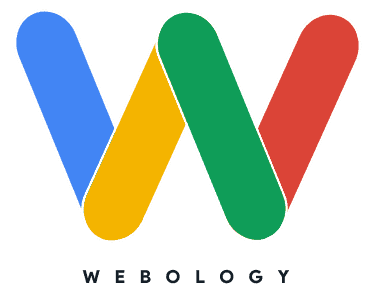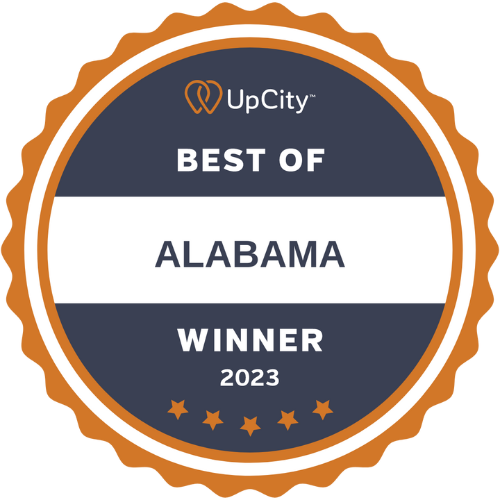“Unlock the Power of SEO: Discover the Essential Elements for Success!”
Table of Contents
A Quick Introduction by Webology
Search engine optimization (SEO) is essential to any online marketing strategy. It is the process of optimizing a website to increase its visibility in search engine results pages (SERPs). SEO involves various techniques and approaches to improve a website’s ranking in SERPs, including keyword research, content optimization, link building, and more. By optimizing a website for search engines, businesses can increase their visibility and attract more potential customers. This article will discuss the important elements of search engine optimization and how they can help companies achieve their online marketing goals.
Understanding the Different Types of SEO Strategies
SEO strategies come in all shapes and sizes, and tracking them can take a lot of work. But don’t worry, we’ve got you covered! Here’s a quick rundown of the different SEO strategies and how they can help you get your website to the top of the search engine rankings.
1. On-Page SEO: This type of SEO focuses on optimizing the content and structure of your website to make it more search engine friendly. This includes optimizing titles, meta descriptions, headings, and other elements of your website.
2. Off-page SEO: This type of SEO focuses on building links to your website from other websites. This can include link building, guest blogging, and social media marketing.
3. Technical SEO: This type of SEO focuses on optimizing the technical aspects of your website, such as page speed, mobile optimization, and structured data.
4. Local SEO: This type of SEO focuses on optimizing your website for local searches. This includes optimizing your website for local keywords, creating local content, and optimizing your Google My Business listing.
5. Content SEO: This type of SEO focuses on creating optimized content for search engines. This includes creating keyword-rich content, optimizing images, and optimizing videos.

The Benefits of Local SEO
Local SEO is the key to unlocking the potential of your business. It can help you reach more customers, increase visibility, and boost your bottom line. Here are some of the benefits of local SEO that you can’t afford to ignore:
1. Reach More Customers: Local SEO helps you reach customers in your area who are searching for the products and services you offer. This means more potential customers and more sales.
2. Increase Visibility: Local SEO helps you stand out from the competition and get noticed by potential customers. It also enables you to rank higher in search engine results, making you more likely to be seen by people searching for your offer.
3. Boost Your Bottom Line: Local SEO can help you increase your profits by driving more traffic to your website and increasing your conversion rate.
4. Get Found on Mobile Devices: Local SEO helps you get found on mobile devices, which is essential today. People increasingly use their phones to search for businesses, so it’s vital to ensure you’re visible on mobile devices.
5. Improve Your Reputation: Local SEO can help you build a positive reputation in your area. People are more likely to trust businesses that appear in local search results, so you must ensure you’re visible.
The Impact of Social Media on SEO
Social media and SEO have a complicated relationship. On one hand, social media can be a great way to boost your SEO rankings. On the other hand, it can be a huge time-suck that could be better for your SEO. So, what’s the real impact of social media on SEO?
Well, let’s start with the good news. Social media can be a great way to get your content and increase your visibility. When you post content on social media, it can be seen by a much larger audience than if you just posted it on your website. This increased visibility can lead to more people linking to your content, which can help your SEO rankings.
But there’s a catch. More than just posting content on social media is required. You must ensure your content is engaging and interesting enough for people to click. If your content isn’t interesting, no one will click on it, and your SEO rankings won’t benefit.
How to Create Quality Content for SEO
Creating quality content for SEO can be daunting, but it doesn’t have to be! Here are some tips to help you create content to make your website stand out.
1. Know Your Audience: Before you start writing, knowing who you’re writing for is essential. Who is your target audience? What kind of content do they like? Knowing your audience will help you create content that resonates with them.
2. Choose Your Keywords: Once you know your audience, it’s time to choose your keywords. Keywords are the words and phrases people use to search for information online. Choose keywords relevant to your topic that your audience is likely to use.
3. Write Quality Content: Now that you know your audience and have chosen your keywords, it’s time to write quality content. Make sure your content is well-written, informative, and engaging. Use humor to keep your readers interested and entertained.
4. Optimize Your Content: Once you’ve written your content, it’s time to optimize it for SEO. This means naturally adding keywords to your content, using headings and subheadings, and including internal and external links.
The Role of Backlinks in SEO

Backlinks are like the cool kids in school. Everyone wants to befriend them, but they’re hard to get.
In the world of SEO, backlinks are the currency of success. They’re the key to getting your website noticed and ranking higher in search engine results.
But how do you get backlinks? It’s not as easy as it sounds. You need to create content worth linking to, and then you need to get other websites to link to it.
It’s like trying to get the cool kids to like you. You need to be creative, engaging, and have something to offer.
Once you’ve got the backlinks, you must ensure they’re from reputable sources. Google looks at the quality of the backlinks, so it’s essential to ensure they’re from websites relevant to your topics.
The Benefits of Using Keywords in SEO
If you’re seeking a method to enhance your SEO efforts, you’ve landed in the right spot! Keywords stand as one of the paramount assets in your SEO toolkit, capable of propelling your website to the pinnacle of search engine rankings.
So, what are keywords? They’re words or phrases that people use when they’re searching for something online. For example, someone looking for a new pair of shoes might type “shoes” or “sneakers” into the search engine. Using keywords in your content ensures that your website is one of the first ones that pops up when someone searches for a particular topic.
Understanding the SEO strategy is recognizing the role of these components. Keyword research is paramount as it underpins nearly all other SEO factors. Identifying the right keywords means you’re effectively tapping into the user’s search intent, aligning your content with what searchers are actively looking for. Meanwhile, crafting compelling meta titles is crucial as they are the first snippet of content a potential visitor sees in the search results. These titles should hint at the comprehensive value lying behind the click, ensuring they are both engaging and reflective of the keyword strategy.

Using keywords in your SEO can help you get more traffic to your website. When you use keywords in your content, it helps search engines understand what your website is about. This means that when someone searches for a particular topic, your website is more likely to appear in the search results. By using keywords related to your target audience, you can ensure that your website is seen by the people who are most likely to be interested in what you have to offer.
How to Optimize Your Website for Search Engines
1. Start with Keywords: Before optimizing your website, you need to identify the keywords you want to target. These keywords should be related to your website’s content and should be used throughout your website.
2. Write Quality Content: Quality content is vital when optimizing your website for search engines. Ensure your content is well-written, informative, and relevant to your target audience.
3. Use Meta Tags: Meta tags are HTML tags that provide search engines with information about your website. Make sure to include meta tags in your website’s code to help search engines understand your website better.
4. Optimize Your Images: Images can help make your website more visually appealing and help with SEO. Ensure to include keywords in the file names of your images and use the “alt” tag to describe the image.
5. Link Building: Link building is an integral part of SEO. Make sure to link to other websites related to your content and ask others to link to yours.
6. Monitor Your Progress: Once you’ve implemented all these tips, you must monitor your progress. Use tools like Google Analytics to track your website’s performance and adjust as needed.
Understanding the Basics of SEO: What You Need to Know
A lot has changed in the last year or so, but the basics remain the same…
User experience remains a pivotal part of SEO and search engine rankings. Websites that are user-friendly and provide valuable content naturally keep users engaged longer, reducing bounce rates, and increasing the chances of a conversion. This shows the interconnected nature of these SEO elements, where each part supports and enhances the others.
The important parts of SEO cover a broad range of SEO elements – from technical configurations like search engine optimization tactics to the more nuanced aspects of creating user-centric content that resonates with both search engine algorithms and human audiences. Every part is crucial in weaving the complex tapestry that is SEO. To optimize your overall SEO strategy, focus on these essential components, ensuring they work in harmony to boost your online visibility and ultimately, your conversion rates.
Finally, you need to make sure you’re building backlinks to your website. This means getting other websites to link to yours, which helps search engines understand that your website is essential and should be ranked higher.
Q&A With Webology
What is Search Engine Optimization (SEO)?
Search Engine Optimization (SEO) is optimizing a website or web page to increase its visibility in search engine results pages (SERPs). This is done using keyword research, content optimization, link building, and other strategies to improve a website’s ranking in SERPs.
What are the most essential elements of SEO?
The most essential elements of SEO are keyword research, content optimization, link building, and technical optimization.
What is keyword research?
Keyword research is the process of researching and selecting keywords that are relevant to a website’s content and target audience. This helps to ensure that the website is optimized for the right keywords and phrases, which can help to improve its visibility in SERPs.
What is content optimization?
Content optimization is optimizing a website’s content to ensure it is relevant to the target audience and optimized for the right keywords. This includes optimizing titles, headings, meta descriptions, and other content elements to ensure it is optimized for search engines.
What is link building?
Link building is acquiring links from other websites to a website. This helps to improve the website’s visibility in SERPs, as well as its authority and trustworthiness.
What is technical optimization?
Technical optimization is optimizing a website’s code and structure to ensure it is optimized for search engines. This includes optimizing page speed, mobile-friendliness, and other technical aspects of the website.
How can SEO help a website?
SEO can help a website by improving its visibility in SERPs, increasing its authority and trustworthiness, and helping drive more organic traffic.
What are the benefits of SEO?
The benefits of SEO include increased visibility in SERPs, increased organic traffic, improved authority and trustworthiness, and enhanced user experience.
An Essential Part of your Online Marketing Strategy
Search engine optimization is an essential part of any successful online marketing strategy. It is important to understand the critical elements of SEO, such as keyword research, content optimization, link building, and technical optimization, to maximize the visibility of your website and increase its ranking in search engine results. Utilizing these elements ensures that the right people see your website and that it is optimized for the best possible search engine results.













